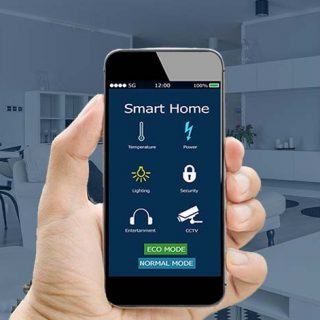Today, organizations have to consider various factors while developing a mobile application to make it commercially successful. It needs to provide flawless and personalized user experience. In the last few years, there has been a rapid increase and change in the technologies, platforms, and mobiles due to which the need of rigorous mobile application testing has increased to meet the demands of digital transformation trends. The software testing market has changed a lot and has become more of a customer centric rather than a product centric.
Introduction
With the aim to meet the demands of an agile development process, there are plenty of testing tools which can help the team to test varied parameters of the mobile apps like behavior, performance, security etc. in the completely automated way. Some of these testing tools work competitively on native, hybrid and web applications.
1. Appium
It is an open source tool for automating native, hybrid application on iOS and the Android platform along with the mobile web. For mobile testing, none of the code needs to be modified and it’s easy to use interface and works directly. It is based on selenium and it supports major languages like Python, Java, JavaScript, Ruby, C#.
2. Calabash
Calabash is an automated acceptance testing framework for mobile apps. It supports 2 open source libraries Android and iOS. Calabash is maintained by Xamarin and is a cloud-based testing tool. It works well with Ruby, Java, Net, Flex.
3. Frank iOS
It is an open source testing tool specifically for iOS and it shows combined features of Cucumber and JSON. Here the code need not be changed to run the test, but it’s difficult to use directly on the device so mostly used for web application. It includes a powerful “app inspector” called Symbiote that can be used to get detailed information on the running app.
4. Monkey Talk
Acquired by oracle in 2015, it is a cross-platform testing tool that automates real, functional interactive test. Monkey Talk works efficiently in case of testing on an actual hardware or a simulator. It is an open-source tool consist of three components such as IDE, Scripts, and agents.
5. Robotium
It is an excellent android testing tool and has an open source library. Robotium makes it easy to write powerful and robust automatic black-box UI tests for Android applications. It has full support for native and hybrid applications. With its support, developers can write function, system, and user acceptance test scenarios, spanning multiple Android activities
6. Selendroid
It is a framework which drives the UI of Android native and hybrid application. It can be integrated as a node into the Selenium Grid for scaling and parallel testing. Selendroid supports hot plugging of hardware devices and has built-in Inspector to simplify test case development. It is fully compatible with the JSON Wire Protocol/Selenium 3 Ready.
7. KeepItFunctional (KIF)
This is an iOS integration test framework that allows easy automation of iOS application. The tests for the framework are written in Objective-C which allows for maximum integration with the code and minimizes the number of layers that have to be built. It builds and performs the tests using a standard OCUnit testing target.
8. EarlGrey
It is a native iOS UI automation test framework that enables the user to write clear, concise tests. It integrates with Xcode’s Test Navigator so that one can run tests directly from Xcode or the command line. EarlGrey test automation framework automatically synchronizes with the UI and network requests.
9. Ranorex
Ranorex is designed by Ranorex GmbH, a software development company for software test automation solutions. It does not have its own scripting language so it used programming languages like C# and VB.NET as a base. It is an open source and is used to test native iOS apps, native mobile apps, Mobile Web Testing for iOS, Mono touch etc.
10. EggPlant
This is a black-box GUI test automation tool, designed for Android and iOS app testing by TestPlant. Scripting in EggPlant is accomplished using a proprietary scripting language called SenseTalk, an English-like language that is simple to use. It uses intelligent image recognition algorithms to “see” the display screen of the computer being tested.
What are the trends in Mobile Application Quality Engineering?
Along with compatibility with multiple platforms, the mobile testing apps are going to face huge advancement due to the rapid technological transformations. So top test automation trends that will make waves are Comprehensive security testing, Big data related application, stability and security with e-commerce application, respond to voice commands, assess the performance and functionality of the app when connected to other devices, use of cloud platform and automation testing.
Conclusion
Today an organization working on software needs to automate their testing efforts to accomplish both speed and consistency with the trend of the cloud platform, the testers are enabled to assess the application’s look, feel and performance across multiple devices without buying these devices. So while choosing the testing partner, one must ensure that they keep track of the most recent trends in mobile application testing to get efficient output.
How VOLANSYS help its customers
With VOLANSYS’ multiyear experience in developing IoT Products, Enterprise Software, Mobile Apps, Cloud-based Solutions, Connected Apps, have evolved us into a Seasoned Quality Advocates with a mindset of Automation. So, to bring your product up to the mark of highest quality, we cater Quality in various segments by means of our core engineering services. We keep abreast with new trends in the market and the technologies which are upgraded so that every product stand out with the new market demand.
Want to know how can we shape your aspiration with our solutions? Drop us a mail at [email protected] or call us at +1 510 358 4310.

About the Author: Deepak Raj
Deepak works with VOLANSYS Technologies as a Sales Manager. He interfaces with enterprises, technology providers and start-ups to help build amazing products and solutions in the domains of IoT, Medical, Consumer Electronics, Multimedia, Wireless Connectivity and Digital Networking.









